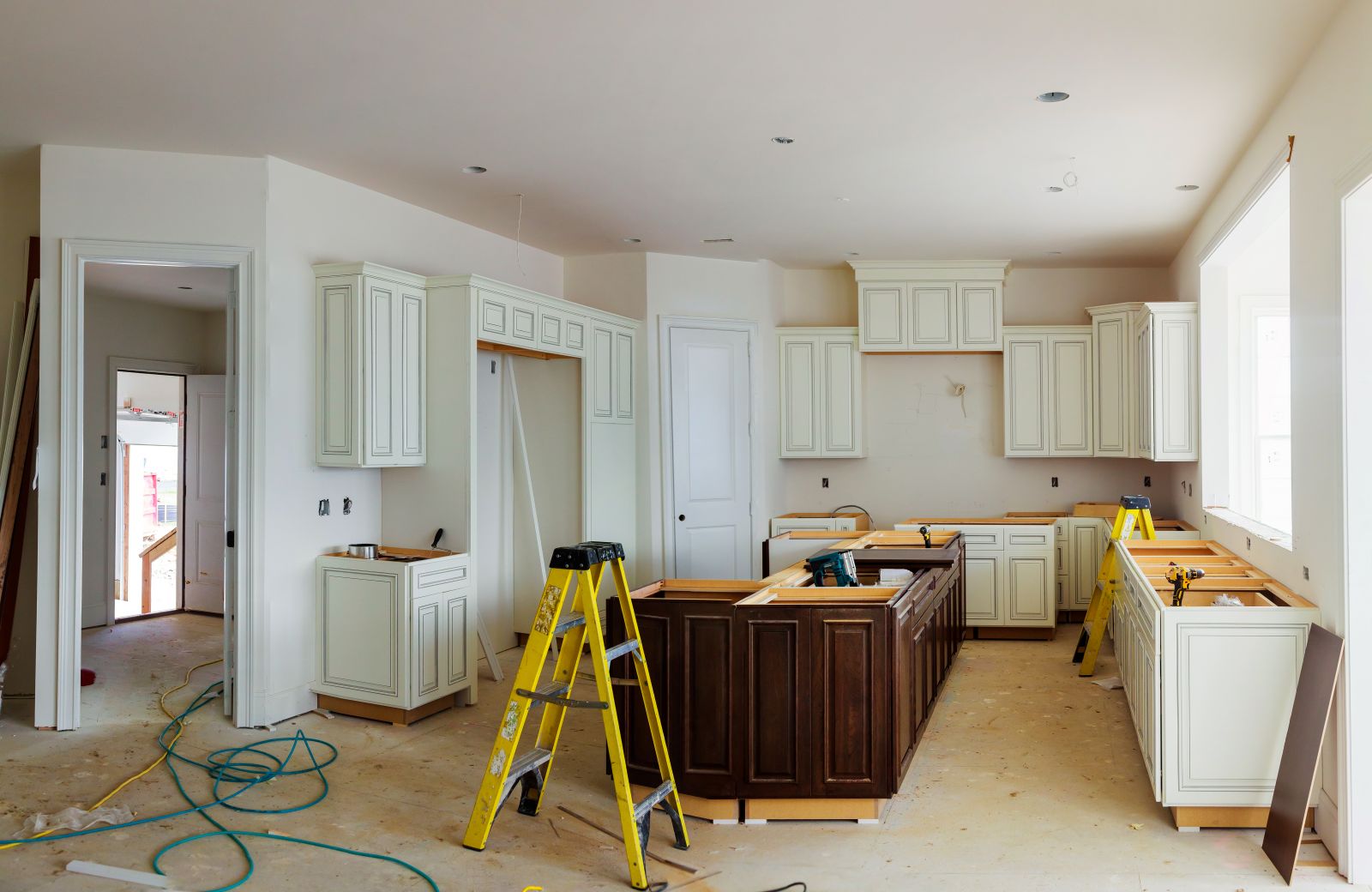Blog

Is Porcelain Stronger Than Granite For Your Kitchen Remodeling
When it comes to choosing the perfect material for your countertops, two popular options often come up in the conversation: porcelain and granite. Homeowners, designers, and contractors frequently debate which material is stronger, more durable, and better suited for kitchen and bathroom spaces. So, the question arises, “Is porcelain stronger than granite?”
In this blog, we’ll explore the strengths and properties of porcelain countertops and granite, comparing their durability, performance, and aesthetics. Whether you’re planning a kitchen remodel or looking for the best countertop material for your new home, this comprehensive guide will help you make an informed decision.
What Are Porcelain Countertops?
Porcelain countertops are made from a type of ceramic that is fired at extremely high temperatures, resulting in a dense, hard surface. Porcelain slabs are composed primarily of fine clay, along with minerals like feldspar and silica. This manufacturing process makes porcelain not only incredibly durable but also resistant to scratches, stains, and high heat.
Porcelain fabrication has become more popular in recent years, offering homeowners an elegant, modern, and versatile surface that can mimic the look of natural stone, wood, and even concrete.
What Is Granite?
Granite, on the other hand, is a natural stone that forms deep within the Earth’s crust from cooling molten rock. Each slab of granite is unique, offering distinctive veining, color variations, and patterns. Granite countertops have been a staple in kitchens and bathrooms for decades due to their natural beauty, durability, and timeless appeal.
Granite is known for being extremely tough and resistant to heat, but like all natural materials, it has its limitations and care requirements.
Durability: Porcelain vs. Granite
When evaluating which material is stronger and more durable, we need to consider several factors: hardness, heat resistance, scratch resistance, and maintenance.
1. Scratch Resistance
Both porcelain and granite are highly resistant to scratches, but porcelain has the edge. Porcelain countertops are made from an incredibly hard material, which scores a 7 to 9 on the Mohs scale of mineral hardness. This makes them less likely to scratch compared to granite, which scores between 6 and 7.
Anecdote: A homeowner shared, “I was concerned about how durable porcelain would be, but after dropping a knife on my porcelain countertop and seeing no scratches, I was sold!”
2. Heat Resistance
Granite is naturally formed from heat, making it highly resistant to high temperatures. You can place hot pots and pans directly on granite countertops without worrying about damage. Porcelain is also heat-resistant, but it’s important to note that its surface may not withstand as high temperatures as granite. However, for most kitchen applications, both materials perform exceptionally well in handling heat.
3. Stain Resistance
Porcelain slabs are non-porous, meaning they won’t absorb liquids, making them highly resistant to stains from spills like wine, coffee, and oils. Granite, being a natural stone, is porous and must be sealed regularly to prevent staining. If granite is not properly sealed, it can absorb stains and moisture, which can be challenging to remove.
4. Chipping and Cracking
Both granite and porcelain are susceptible to chipping or cracking if subjected to significant force, such as dropping a heavy object on the surface. However, porcelain countertops tend to be more resistant to chips and cracks due to their manufacturing process. Granite, while strong, can chip at the edges if struck hard enough.
Pro Tip: For added protection against chipping, consider porcelain installation techniques that incorporate edge treatments to reinforce vulnerable areas.
Aesthetics: Which Offers More Design Flexibility?
Choosing between porcelain and granite often comes down to personal preference. Both materials offer stunning visual appeal, but they cater to different tastes and design styles.
1. Granite: The Beauty of Nature
Granite is loved for its natural beauty. Each slab of granite is unique, with patterns and colors formed over millions of years. Whether you prefer a subtle, neutral color or a bold, dramatic look, granite offers a wide range of options. However, because it is a natural material, your choices are limited to what nature provides.
Real-Life Example: Sarah, a homeowner in California, chose a unique blue granite slab for her kitchen. “I loved that no one else would have the exact same countertop as me,” she said.
2. Porcelain: Versatility in Design
Porcelain slabs are engineered, allowing for a wide range of colors, patterns, and finishes. With advancements in technology, porcelain fabrication can mimic the look of marble, granite, concrete, or wood. This gives homeowners more control over the appearance of their countertops without the limitations of natural materials.
Porcelain also comes in various thicknesses, making it a flexible option for different design applications, from countertops to backsplashes.
Maintenance: What You Need to Know
When it comes to maintaining your countertops, porcelain offers a significant advantage over granite.
1. Porcelain Countertops
As mentioned earlier, porcelain is non-porous, which makes it incredibly easy to clean and maintain. It doesn’t require sealing, and most stains can be wiped away with soap and water. Its resistance to UV rays also makes porcelain an excellent choice for outdoor kitchens, as it won’t fade or discolor over time.
2. Granite Countertops
Granite requires more maintenance than porcelain. Because granite is porous, it needs to be sealed regularly (usually once a year) to maintain its stain resistance. Failing to do so can result in permanent stains. Cleaning granite also requires the use of pH-neutral cleaners to avoid damaging the sealant.
Cost Comparison: Porcelain vs. Granite
Cost is always a major factor in deciding between countertop materials. Generally speaking, both porcelain and granite are considered premium materials, but there are some differences in price.
1. Porcelain Countertops
The price of porcelain countertops can range from $60 to $120 per square foot, depending on the quality of the material and the complexity of the porcelain installation. Porcelain’s ease of fabrication and installation can sometimes reduce labor costs, especially if the project requires intricate designs or large slab applications.
2. Granite Countertops
Granite prices typically range from $50 to $200 per square foot, depending on the rarity and quality of the stone. While basic granite options can be more affordable than porcelain, high-end granite can be significantly more expensive.
Pro Tip: Always consider the full cost, including installation, as some contractors may charge more for handling heavier materials like granite.
Sustainability and Environmental Impact
For homeowners concerned about sustainability, both porcelain and granite have their benefits.
1. Porcelain
Porcelain countertops are made from natural materials, and the manufacturing process has become more eco-friendly in recent years. Additionally, porcelain is highly durable, which means fewer replacements over time, reducing waste.
2. Granite
Granite is a natural material, but the quarrying process can have environmental impacts, such as habitat disruption and energy consumption. However, granite is a long-lasting material, and if sourced responsibly, it can be a sustainable choice for homeowners.
Conclusion: Is Porcelain Stronger Than Granite?
So, is porcelain stronger than granite? When comparing specific factors like scratch resistance, stain resistance, and maintenance, porcelain often comes out on top. However, granite still holds its own in terms of natural beauty, heat resistance, and timeless appeal.
For homeowners seeking durability, easy maintenance, and design flexibility, porcelain countertops offer a modern solution that rivals, and in some cases, surpasses granite. If you love the look and feel of natural stone and don’t mind the extra maintenance, granite may be the better choice for you.
Ultimately, both materials are excellent choices, and your decision will depend on your lifestyle, design preferences, and budget. No matter which material you choose, a well-installed countertop will provide functionality and beauty for years to come.
If you’re ready to start your porcelain installation or explore more about porcelain slabs, reach out to a professional fabricator today to get a quote and find the best option for your home.








